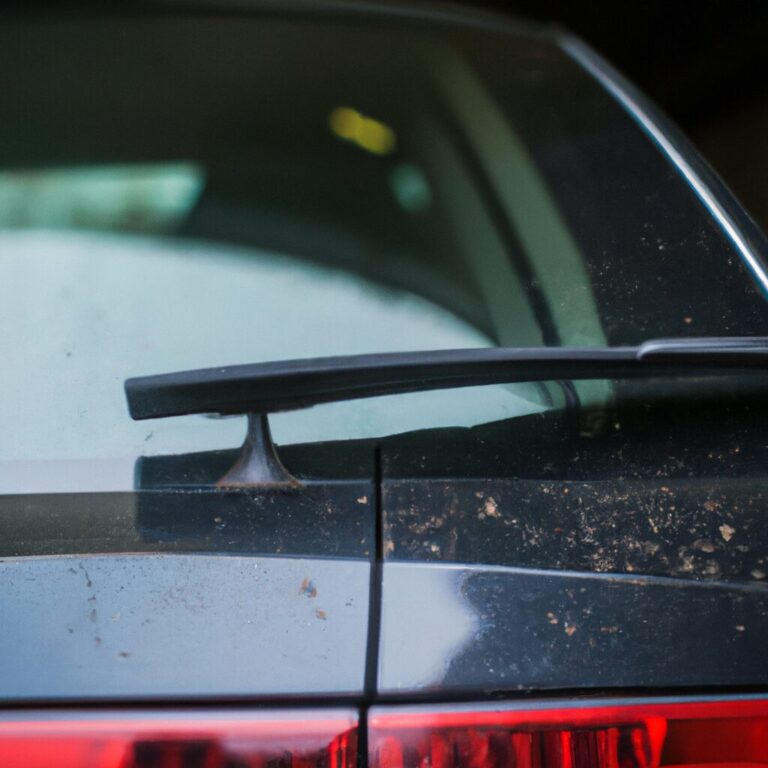Effective Solutions for Radiator Overheating Issues
To prevent radiator overheating issues, regular maintenance and monitoring is essential. Proper coolant levels, clean radiator fins, and a functional cooling fan can help avoid overheating.
Neglecting these can lead to engine damage and costly repairs. Maintaining a properly functioning radiator is crucial for the health and longevity of your vehicle. Overheating can cause significant damage to the engine, resulting in expensive repairs. Therefore, it is important to stay proactive and address any radiator overheating issues before they escalate.
We will explore some effective solutions to prevent radiator overheating problems and keep your vehicle running smoothly. By adhering to these solutions, you can save yourself from unnecessary repair costs and ensure a reliable performance from your vehicle. So, let’s dive in and explore the best ways to tackle radiator overheating issues head-on.

Credit: view.publitas.com
Common Causes Of Radiator Overheating
Radiator overheating can be caused by issues such as coolant leaks, a faulty thermostat, or a clogged radiator. To effectively solve these problems, it’s important to regularly check and maintain proper coolant levels, replace the thermostat if necessary, and ensure the radiator is clean and free of debris to prevent overheating.
Common Causes of Radiator Overheating are often attributed to specific issues that can impact your vehicle’s cooling system. Let’s explore the key factors that can lead to radiator overheating and potential solutions.
Low Coolant Levels
Low Coolant Levels can result from leaks or evaporation, leading to inadequate heat dissipation in the radiator. Regularly check and top up coolant levels to prevent overheating.
Thermostat Malfunction
Thermostat Malfunction can cause the radiator to overheat due to improper temperature regulation. Replace a faulty thermostat to restore optimal cooling system functionality and prevent overheating.
Cooling Fan Failure
Cooling Fan Failure hampers the radiator’s ability to cool the engine efficiently. Ensure the cooling fan is functioning correctly or replace it if necessary to prevent overheating issues.
Signs Of Radiator Overheating
Radiator overheating can lead to serious engine damage if not addressed promptly. It’s crucial to be aware of the signs that indicate your radiator is experiencing overheating issues. By recognizing these signs early on, you can take effective measures to prevent further damage and keep your engine running smoothly. The following are some of the common signs of radiator overheating:
Temperature Gauge In Red Zone
One of the clearest indicators of radiator overheating is when your temperature gauge rises into the red zone. On your dashboard, you’ll notice a temperature gauge displaying the current temperature of your engine. When the gauge reaches or exceeds the red zone, it is a sign that your engine is running too hot.
This spike in temperature can be caused by several factors, such as a malfunctioning thermostat, low coolant levels, or a faulty radiator fan. Ignoring this warning sign can lead to severe engine damage, so it’s crucial to address the issue immediately.
Steam Or Fluid Leakage
Another sign of radiator overheating is the presence of steam or fluid leakage. If you notice steam escaping from under the hood of your car or see fluid pooling underneath, it’s a clear indication that your radiator is experiencing overheating. This leakage often occurs due to a crack or hole in the radiator, causing the coolant to escape.
Avoid continuing to drive your vehicle if you observe steam or fluid leakage, as it can lead to further damage to your engine. Instead, safely pull over and allow your engine to cool down before inspecting the source of the leakage or seeking professional assistance.
Knowing the signs of radiator overheating can save you from costly repairs and potential engine failure. If you notice your temperature gauge in the red zone or observe steam or fluid leakage, it’s essential to take immediate action to diagnose and address the underlying issue. By doing so, you can ensure the longevity and performance of your engine.
Preventive Maintenance
Preventing radiator overheating issues is crucial to ensure the optimal performance and longevity of your vehicle’s cooling system. By incorporating regular preventive maintenance measures into your routine, you can avoid costly repairs and improve your vehicle’s overall efficiency.
Regular Coolant Checks
Regular coolant checks are essential to maintain the proper functioning of your radiator. It is recommended to inspect the coolant level at least once a month or as indicated in your vehicle’s owner manual. To do this, simply locate the coolant reservoir, usually a translucent plastic container near the radiator, and check if the coolant level falls between the minimum and maximum markings.
In addition to checking the coolant level, it is important to examine its condition. Over time, the coolant can become contaminated with rust, debris, or other impurities that hinder its cooling properties. If you notice any discoloration, sediments, or a foul smell, it is a sign of a compromised coolant system. In such cases, it is advisable to flush and replace the coolant to prevent radiator overheating issues.
Thermostat Inspections
Your vehicle’s thermostat acts as a gatekeeper, regulating the flow of coolant through the radiator. If the thermostat fails to function properly, it can result in inadequate coolant circulation, leading to radiator overheating.
To inspect the thermostat, start by allowing your engine to cool down completely. Locate the thermostat housing, usually positioned near the engine’s upper radiator hose. Remove the housing and carefully take out the thermostat. Submerge it in a pot of boiling water and observe its behavior. If the thermostat fails to open as the water heats up, it is likely faulty and requires replacement.
Regular thermostat inspections are essential to identify any malfunctions before they cause significant damage to your vehicle’s cooling system. By replacing a faulty thermostat promptly, you can prevent radiator overheating issues and maintain optimal engine temperature.
Diy Troubleshooting Tips
Dive into some DIY strategies to tackle radiator overheating problems with these handy troubleshooting tips.
Check Coolant Levels
Start by ensuring the coolant tank is filled to the proper level. Use a coolant/antifreeze mix recommended for your vehicle brand.
Inspect Radiator Hoses
Look for visible signs of cracks, leaks or bulges on the radiator hoses. Check the connections for tightness and signs of wear.
Professional Solutions
When professional solutions are needed to address radiator overheating issues, certain specific measures can prove to be effective in resolving the problem. By considering professional solutions, you can ensure that your radiator is properly maintained and functioning optimally.
Radiator Flush
One of the key professional solutions for addressing radiator overheating issues is to perform a radiator flush. This process involves removing the old coolant and flushing out any accumulated debris or sediment from the radiator and coolant system. A clean radiator will aid in efficient heat transfer and help prevent overheating.
Thermostat Replacement
Another important professional solution is to consider replacing the thermostat. The thermostat is a critical component that regulates the flow of coolant through the radiator. If the thermostat is malfunctioning, it can cause overheating issues. Replacing the thermostat with a new, properly functioning one can help resolve this problem effectively.

Credit: www.facebook.com

Credit: m.facebook.com
Frequently Asked Questions On Effective Solutions For Radiator Overheating Issues
How Do You Fix A Radiator That Overheats?
To fix an overheating radiator, check coolant levels, inspect for leaks, replace radiator cap, flush system, and ensure proper air circulation.
What Can I Put In My Radiator To Stop Overheating?
To stop overheating, you can add coolant or antifreeze to your radiator. These liquids help to regulate the engine’s temperature. Make sure to use the correct type recommended by your vehicle’s manufacturer. It’s best to consult your owner’s manual or a professional mechanic for guidance.
How Do You Fix Coolant Overheating?
To fix coolant overheating, first let your engine cool down completely. Check the coolant level and add more if needed. Look for any leaks in the cooling system and fix them. Ensure the radiator fan is working properly. If the problem persists, consult a mechanic for further inspection and repair.
What Is The Fastest Way To Cool An Overheating Engine?
The fastest way to cool an overheating engine is to turn off the AC, turn on the heat, pull over, and let the engine idle. Open the hood carefully and add coolant if needed.
Conclusion
In order to prevent radiator overheating, it’s vital to regularly maintain the cooling system. By checking coolant levels and ensuring proper airflow, you can avoid potential issues. Remember to address any leaks promptly and seek professional help if needed. Taking these steps will keep your radiator functioning efficiently.

